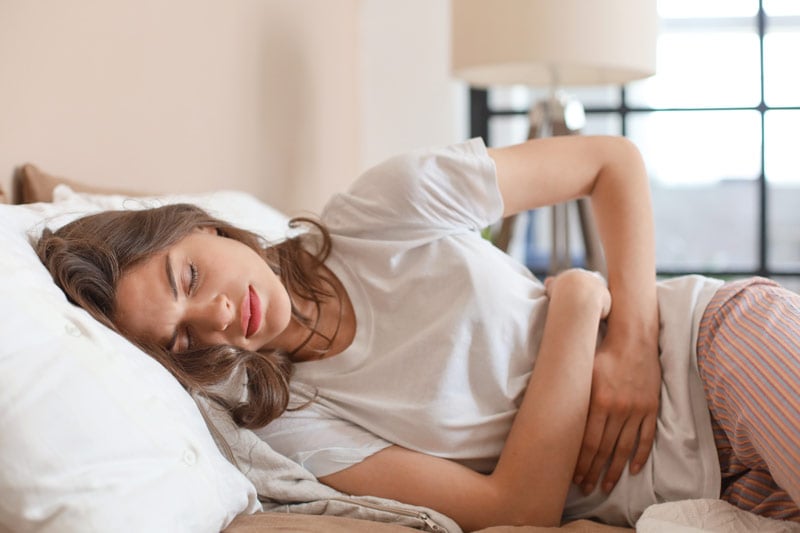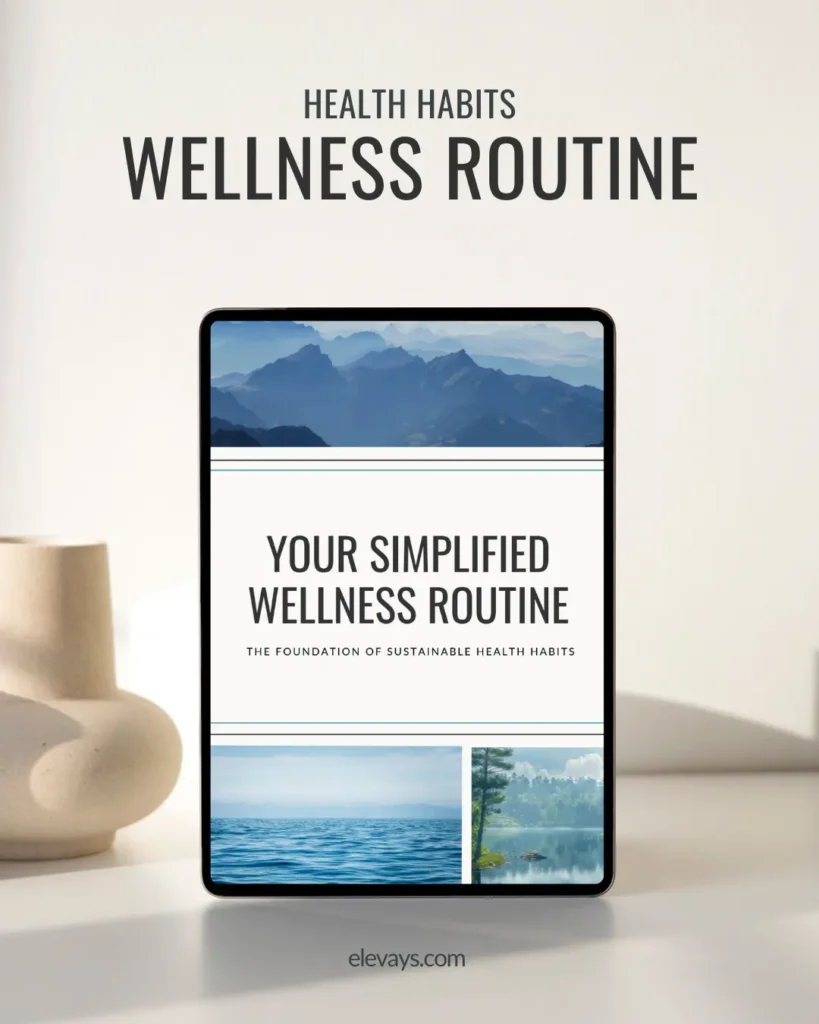If you feel exhausted during your period, you are not alone. Feeling a little extra snoozy during your time of the month is normal, and there’s evidence to back it up. In this article, I’m sharing five reasons why you experience period fatigue, and what you can do to nourish and replenish energy levels.
Why Am I So Tired on My Period? 5 Reasons for Period Fatigue
Unfortunately, periods tend to bring on a whole lot of unwanted symptoms like mood swings, bloating, headaches, and cramps. While many of these symptoms can be remedied with herbs, diet, and lifestyle changes—some of them (hint fatigue) during this time are just how it goes. And we can thank natural hormonal fluctuations for this. But other reasons are not normal and should be addressed as soon as possible. Let’s dive in.
1 – Estrogen Fluctuations
During the second half of your menstrual cycle, that time when you start to feel a little bit more tired or sluggish, estrogen levels peak and then fall. They continue to fall during the week of your period, making you feel more tired and less la-deda about life. While it’s inevitable that estrogen levels drop during this time, there are some things you can do to support a more stable fluctuation of estrogen.
TRUTH BOMB:
You’re
Already killing it!
If You Were More Consistent With Your Wellness Routine, You’d Be Unstoppable.
Herbs like red clover and foods like flax are excellent sources to help with natural estrogen. You can also try seed cycling, which involves consuming certain seeds during certain times of your cycle. For more information about herbs for hormones and seed cycling. Tune into our podcast episodes with Dr. Shannon Curtis.
- Dr. Shannon Curtis on her post-pill healing journey, natural remedies for acne, and herbs for hormones
- How to Heal Hormonal Acne Naturally with Dr. Shannon Curtis
You can also read about balancing hormones with food in this guide.
2 – Iron Deficiency and Heavy Menstrual Bleeding
If you already suffer from low iron levels or anemia, losing any amount of blood during your period can result in extreme tiredness. If you have not been diagnosed with anemia but still experience heavy menstrual bleeding, you probably feel sluggish during your period. If this sounds like you, I recommend getting your iron levels tested.
Heavy menstrual bleeding can result from many things, including PCOS, missed ovulation, long cycles, stress, poor detoxification, and more. It’s important to not write this reason off as “normal”—because it’s definitely not.
According to women’s health doctor and doula, Dr. Aviva Romm, a heavy period can be categorized as:
- Your period lasts longer than 7 days.
- You need to use more than 6 pads or tampons per day, not fully soaked, or you’re soaking through more than two pads or tampons in a day.
- You typically need to change your pads or tampons after 1 to 2 hours.
- You’re regularly soaking through your clothes on your period.
- You have to change your tampon or pad during the night.
- You’re passing blood clots the size of a quarter or larger with your period blood.
- You have to plan your activities around your period.
The fix here is to reduce excess estrogen chemicals from cosmetics, plastics, and conventional food sources, increase green vegetables and fermented foods, and support ovulation with vitamin C, maitake mushrooms, and flax seeds.
3 – Stress
Stress can cause tiredness, not only during your period but also at all other times. If you experience chronic low levels of stress or acute stressful situations, odds are you feel sluggish. Right before your period, serotonin levels drop, making you a little more irritable and less likely to let things slide off your back. This time makes you especially susceptible to stress and emotional breakdowns.
As you may know, stress takes a major toll on your body, adrenals, and nervous system. If you’ve been following me for a while, you know that helping people heal from adrenal fatigue and burnout is my jam. The biggest thing we tackle in my coaching program is reducing stress and healing the HPA axis. If you feel tired during your period, the same tactics will apply to you.
During not only the week of your period but also the rest of your cycle, you must bring in stress-management practices. This will help nourish your energy levels. Here are some ideas:
- Take a daily walk outside
- Take a nightly bath with lavender essential oil
- Practice yoga
- Meditation and breathwork
- Dance to your favorite tunes
- Journal
- Hum/sing (this helps stimulate the vagus nerve!)
4 – Unhealthy Eating Habits During/Before Cycle
Unhealthy eating habits can throw blood sugar levels out of whack, increase inflammation, and cause stress in the body and mind. I know it can be lovely to have comfort foods before and during your cycle, but consuming foods high in white sugars, flour, and chemicals can be detrimental to hormone balance and energy levels.
As I mentioned, poor detoxification is one of the reasons for a heavy period, and both are causes of tiredness. To help with detoxification, consuming lots of healthy, nutrient-rich foods during your cycle is important. Think dark greens, veggies, berries, fermented foods, flax seeds, and beans. Lay low on sugar, dairy, and foods sprayed with pesticides.
And of course—drink plenty of water. Our Hydration Superfood Energy powder not only hydrates better than plain water but also aids in daily, gentle detoxification and natural energy support.
5- Poor Sleep
This may seem like an obvious reason for being tired during your period, but it still needs to be mentioned. Before and during your period, you’re more likely to experience insomnia and sleep disturbances.
To combat poor sleep during your period so that you can wake up refreshed, try these tips:
- Drink calming/sleepy time teas like lavender, passionflower, lemon balm, chamomile, valerian.
- Take magnesium or melatonin supplements
- Don’t drink coffee after 10 am
- Wear blue light blocking glasses after sundown
- Keep room temperature at 67-69 degrees F
- Heating pad
- Take a bath with essential oils like lavender
A Note on Chronic Fatigue
If you experience extreme fatigue during your period and the rest of your cycle, you may be experiencing burnout or adrenal fatigue. Take our 30 second quiz to find out. If you know you are experiencing burnout/adrenal fatigue, check out our free video series here or sign up for our coaching program here.
I hope this article has helped you understand menstrual fatigue in a new light. What tips will you try to make your next period less sluggish? Let me know in the comments below.





READ the Latest
Longevity
Health Habits
Health Habits
Longevity